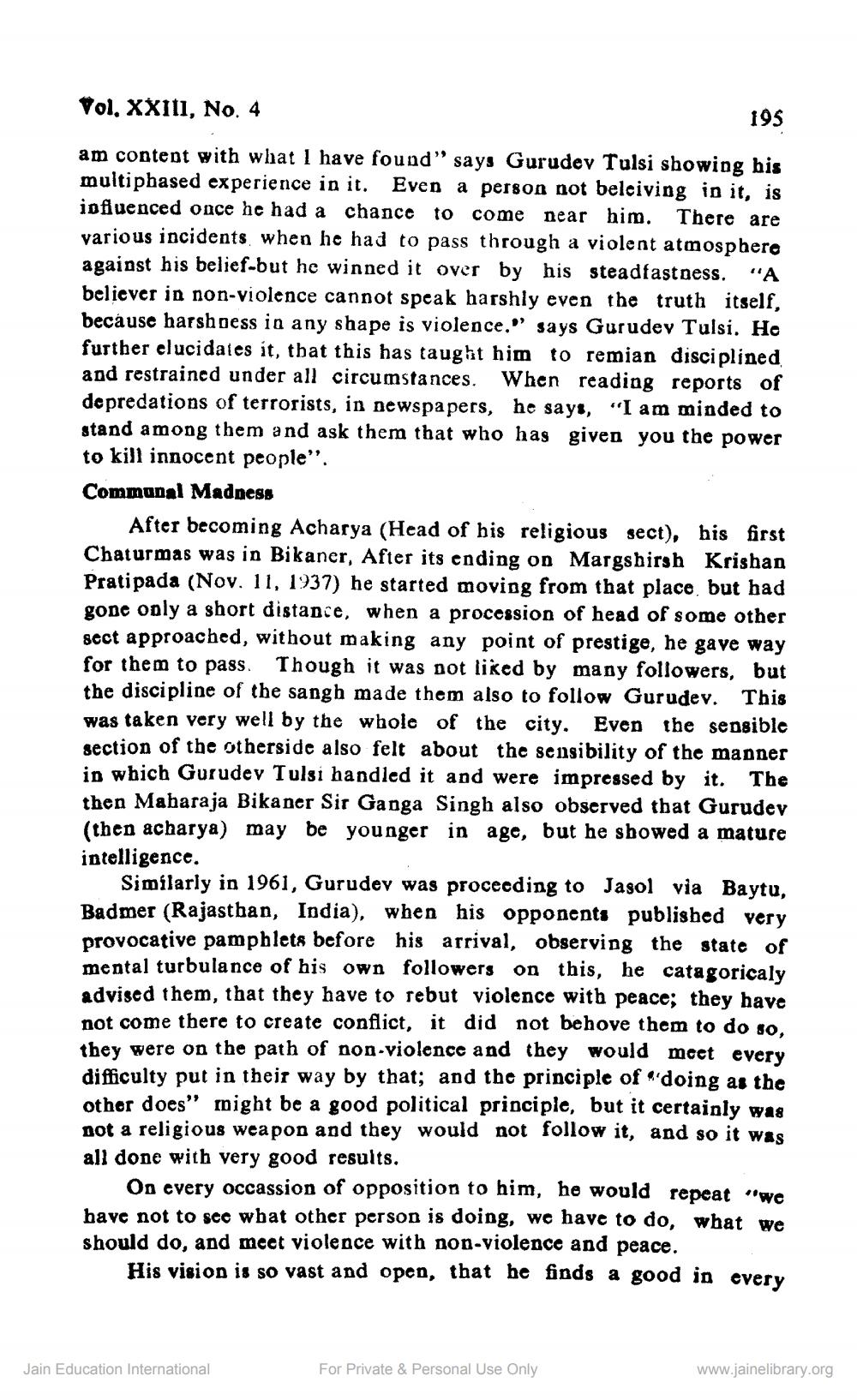________________
Vol. XXIII, No. 4
195,
am content with what I have found” says Gurudev Tulsi showing his multiphased experience in it. Even a person not beleiving in it, is iofluenced once he had a chance to come near him. There are various incidents when he had to pass through a violent atmosphere against his belief-but he winned it over by his steadfastness. “A believer in non-violence cannot speak harshly even the truth itself, because harshness in any shape is violence." says Gurudev Tulsi. Ho further elucidates it, that this has taught him to remian disciplined and restrained under all circumstances. When reading reports of depredations of terrorists, in newspapers, he says, “I am minded to stand among them and ask them that who has given you the power to kill innocent people”. Communal Madness
After becoming Acharya (Head of his religious sect), his first Chaturmas was in Bikaner, After its ending on Margsbirsh Krishan Pratipada (Nov. 11, 1937) he started moving from that place, but had gode only a short distance, when a procession of head of some other sect approached, without making any point of prestige, he gave way for them to pass. Though it was not liked by many followers, but the discipline of the sangh made them also to follow Gurudev. This was taken very well by the whole of the city. Even the sensible section of the otherside also felt about the sensibility of the manner in which Gurudev Tulsi handled it and were impressed by it. The then Maharaja Bikaner Sir Ganga Singh also observed that Gurudev (then acharya) may be younger in age, but he showed a mature intelligence.
Similarly in 1961, Gurudev was proceeding to Jasol via Baytu, Badmer (Rajasthan, India), when his opponents published very provocative pamphlets before his arrival, observing the state of mental turbulance of his own followers on this, he catagoricaly advised them, that they have to rebut violence with peace; they have not come there to create conflict, it did not behove them to do so, they were on the path of non-violence and they would meet every difficulty put in their way by that; and the principle of doing as the othor does” might be a good political principle, but it certainly was not a religious weapon and they would not follow it, and so it was all done with very good results.
On every occassion of opposition to him, he would repeat "we have not to see wbat other person is doing, we have to do, what we should do, and meet violence with non-violence and peace.
His vision is so vast and open, that he finds a good in every
ace.
Jain Education International
For Private & Personal Use Only
www.jainelibrary.org




